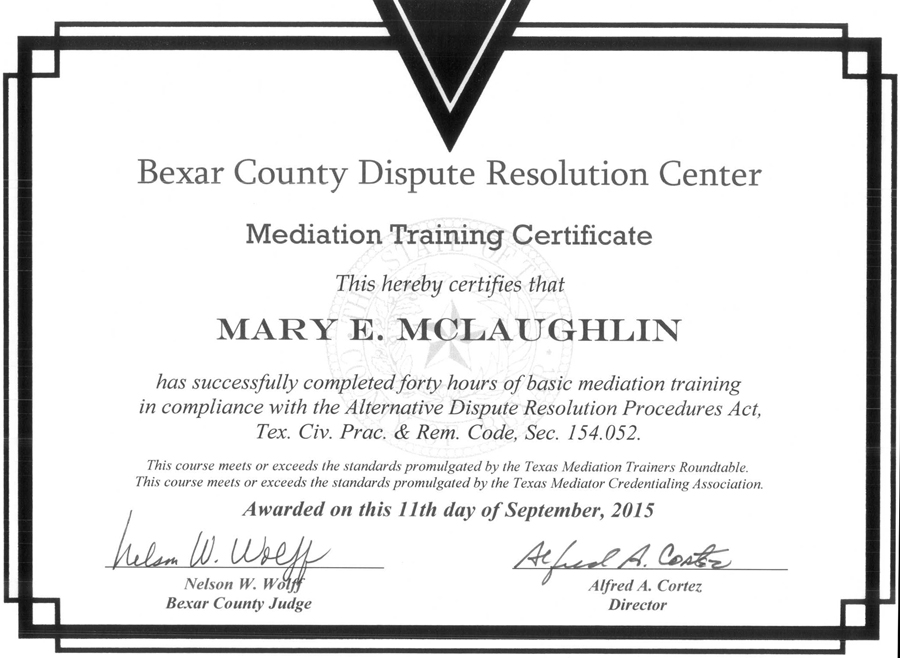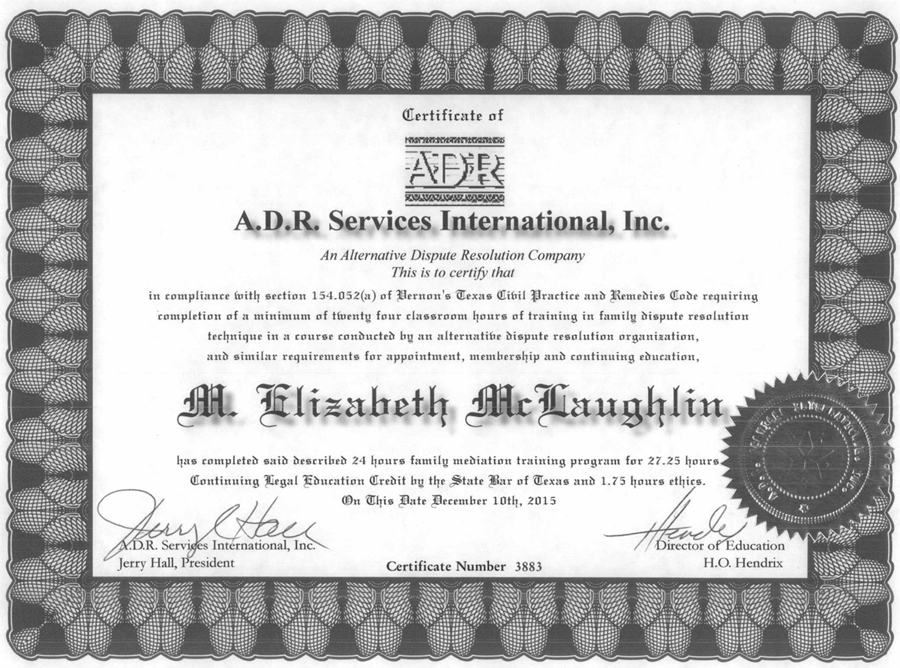In the public imagination, divorce is inherently bitter and combative, usually involving fierce and expensive legal battles. However, in reality, amicable divorce is possible and preferable for many former couples. If you and your soon-to-be former spouse are generally in agreement about the terms of the dissolution of your marriage, you may be able to avoid divorce court and handle everything through divorce mediation instead.
Divorce mediation is a process where a trained and neutral third party works with both of you to reach a peaceful resolution through compromise. Your mediator will explore each party’s concerns and work to find resolutions that are satisfying to both. While it is not legally required that your mediator be a lawyer, it is imperative that you work with someone who is intimately familiar with Texas family law.
Mediation is a great option for many people, but it is not appropriate for every situation. If you think that mediation may be for you, explore the pros and cons before you commit.
Pros of Divorcing with Mediators
One of the top advantages of divorce mediation is that it is an inexpensive divorce alternative. Divorce with a mediator can cost as little as one-tenth of what a litigated divorce would cost. A mediated divorce is also much faster. Working your way through the courts can take time, since many courts have a backlog of cases. With mediation, you set the schedule.
Mediation is also an option that is far more flexible and gives you more control. You and your spouse make decisions together that each of you are comfortable with. Because of this, mediated divorces are also less likely to need modifications later on. In a study of 150 divorces in Iowa, researchers learned that mediated divorces were seven to eight times less likely to need their agreements modified later. This saves time, strife and money.
Potential Cons of Divorce Mediation
Of course, there are also potential pitfalls with a mediated divorce. Be sure to consider all of these possible issues before attempting to settle a divorce through mediation. It is important that concerns are addressed early in order to assure the most equitable settlement for everyone involved.
If one spouse has an advantage over the other, this can lead to a power imbalance during mediation. For instance, one spouse may be better at articulating what they want, which can be an advantage during a negotiation. Power imbalances are also possible if one spouse has more financial resources than the other or if one is more aggressive in negotiations.
Finally, divorce mediation may not be a good option if there are still many areas where you cannot come to an agreement. Since mediation fees are nonrefundable, this can mean added expense in your divorce if mediation is unsuccessful.
Because of the potential drawbacks, it is important that each party retains legal counsel. Your mediator is unable to provide legal advice. Having a skilled family lawyer by your side can help you assure that your rights are respected.
Is a mediated divorce the right choice for you? We can help. Get in touch. We can discuss your options and work toward a solution that works best for everyone involved.





